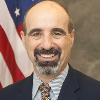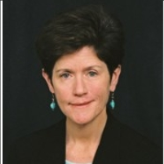The Agency for Healthcare Research and Quality (AHRQ) sponsors research to improve the quality of health care in America. As part of the Department of Health and Human Services, AHRQ is tasked with elevating health care quality, reducing medical-related costs and expanding healthcare access for more Americans. Almost 80% of AHRQ’s budget is awarded as grants and contracts to researchers at universities and other research institutions across the country. Early in its history, the agency became heavily involved in a controversial healthcare reform plan that almost led to AHRQ being eliminated. Since then, the agency has maintained a low profile, low on controversy.
Agency for Health Care Policy and Research Studies Own History to Avoid Repeating Past Mistakes (Robert Wood Johnson Foundation)
- Office of Performance Accountability, Resources, and Technology directs and coordinates the agency’s program planning and evaluation activities and administrative operations.
- Office of Extramural Research, Education and Priority Populations directs the scientific review process for grants and Small Business Innovation Research (SBIR) contracts. It also manages agency research training programs, evaluates the scientific contribution of proposed and ongoing research, demonstrations and evaluations and supports and conducts health services research on priority populations.
- Office of Communications and Knowledge Transfer manages programs for disseminating the results of agency research to various groups in the healthcare industry as well to the public.
- Center for Outcomes and Evidence conducts and supports research and assessment of health care practices, technologies, processes and systems.
- Center for Primary Care, Prevention, and Clinical Partnerships works to better inform clinical providers and patients about best practices to employ in the area of primary care.
- Center for Delivery, Organization, and Markets serves as an interdisciplinary team to identify emerging research needs, manage research grants and contracts, conduct and publish peer-reviewed research and develop databases and software tools. These activities often are carried out in collaboration with others in the agency and through partnerships with public and private parties outside of AHRQ.
- Center for Financing, Access and Cost Trends conducts, supports and manages studies of the cost and financing of health care, the access to health care services and related trends. CFACT also develops data sets to support policy and behavioral research and analyses.
- Center for Quality Improvement and Patient Safety conducts and supports research on patient safety and health care quality measurement, reporting and improvement. It also disseminates reports and information on health care quality and improvement.
- National Advisory Council for Healthcare Research and Quality is 21-member panel comprised of private-sector experts who share their perspectives on the health care system with agency leaders. The members represent health care plans, providers, purchasers, consumers and researchers. Also serving in an ex-officio capacity are representatives of seven federal agencies that address health care system issues: The National Institutes of Health; Department of Defense (Health Affairs); the Centers for Disease Control and Prevention; the Department of Veterans Affairs; the Office of Personnel Management; the Food and Drug Administration; the Centers for Medicare & Medicaid Services; and the Assistant Secretary for Health.
Research Activities Newsletter
|
Westat, Inc
|
$363,082,579
|
|
Social & Scientific Systems
|
$53,602,531
|
|
Research Triangle Institute
|
$43,532,123
|
|
Emergency Care Research Institute
|
$31,423,379
|
|
National Opinion Research Center
|
$26,685,066
|
|
Thomson Company Inc
|
$24,680,365
|
|
Oregon Health & Science University
|
$24,608,949
|
|
Booz Allen Hamilton Inc.
|
$24,231,318
|
|
Hopkins Johns University
|
$23,497,500
|
|
Rand Corporation
|
$16,442,390
|
Additional information on agency
is also available on the Web.
- Table of Contents
- Overview
- History
- What it Does
- Where Does the Money Go
- Controversies
- Suggested Reforms
- Comments
- Leave a comment

Andrew Bindman, a physician who has spent years studying patient quality issues, on May 2, 2016 was named to lead the Agency for Healthcare Research and Quality (AHRQ).
Bindman grew up in the Boston area where his father, Arthur, was a psychologist for the Massachusetts Department of Mental Health. The younger Bindman attended Harvard, earning a bachelor’s degree in psychology and social relations in 1980. He then went to New York’s Mt. Sinai School of Medicine, earning his M.D. in 1984.
Bindman went to UC San Francisco for his residency and remained there for most of his career. After a post-doctoral fellowship at nearby Stanford, Bindman was named an assistant professor at UCSF. In addition, he has long had an association with San Francisco General Hospital, which serves the city’s poor.
Bindman has done several studies on healthcare involving those in poverty. A 1990 study showed how hospital closures hurt the poor more than other patients. He has also investigated the link between access to care and preventable hospitalizations.
Bindman was named San Francisco General’s chief of general internal medicine in 1996. Meanwhile, he continued to climb in the UCSF hierarchy, serving as director of UCSF’s Primary Care Research Fellowship, and the developer of a course on translating research into policy. Bindman did take a year away, in 1999 and 2000, to serve as a visiting professor at University College London. He took another sabbatical, from 2009 to 2010, to work as a policy fellow on the House Energy and Commerce Committee, where he helped draft legislative language for the Affordable Care Act.
Beginning in 2006, he was director of the California Medicaid Research Institute, and starting in 2011, he served as a senior adviser to the federal Department of Health and Human Services’ Office of Health Policy. From 2014 to 2015, Bindman was a senior advisor to the Centers for Medicare & Medicaid Service. He also was a health policy contributing writer for the Journal of the American Medical Association.
When Bindman took over AHRQ, he was a UCSF professor of medicine, health policy, epidemiology and biostatistics. He took leave of that job during his tenure as AHRQ director.
Bindman met the woman who would become his wife, Rebecca Smith-Bindman, during his residency. She is also a professor at UCSF, with a specialty in radiology and an expertise in
patient safety during radiological exams. They have three adult children: Sarah, Julia and Jacob.
-Steve Straehley
To Learn More:
An Interview With Andy Bindman (UC San Francisco) (pdf)
Andrew Bindman Named Director of U.S. Agency for Healthcare Research and Quality (University of California, San Francisco)

- Latest News
- D.C. Public Schools will Teach all Second-Graders to Ride a Bike
- New Rule in Germany Limits Sales of Sex-Themed E-Books to 10pm to 6am
- What Happened to the 6-Year-Old Tibetan Boy the Chinese Government Kidnapped 20 Years Ago?
- U.S. Ambassador to Turkey Photoshops his Hair Color to Mock Turkish Mayor
- Mystery Artist Calls Attention to Unfixed Potholes by Drawing Penises around Them
The Agency for Healthcare Research and Quality (AHRQ) sponsors research to improve the quality of health care in America. As part of the Department of Health and Human Services, AHRQ is tasked with elevating health care quality, reducing medical-related costs and expanding healthcare access for more Americans. Almost 80% of AHRQ’s budget is awarded as grants and contracts to researchers at universities and other research institutions across the country. Early in its history, the agency became heavily involved in a controversial healthcare reform plan that almost led to AHRQ being eliminated. Since then, the agency has maintained a low profile, low on controversy.
Agency for Health Care Policy and Research Studies Own History to Avoid Repeating Past Mistakes (Robert Wood Johnson Foundation)
- Office of Performance Accountability, Resources, and Technology directs and coordinates the agency’s program planning and evaluation activities and administrative operations.
- Office of Extramural Research, Education and Priority Populations directs the scientific review process for grants and Small Business Innovation Research (SBIR) contracts. It also manages agency research training programs, evaluates the scientific contribution of proposed and ongoing research, demonstrations and evaluations and supports and conducts health services research on priority populations.
- Office of Communications and Knowledge Transfer manages programs for disseminating the results of agency research to various groups in the healthcare industry as well to the public.
- Center for Outcomes and Evidence conducts and supports research and assessment of health care practices, technologies, processes and systems.
- Center for Primary Care, Prevention, and Clinical Partnerships works to better inform clinical providers and patients about best practices to employ in the area of primary care.
- Center for Delivery, Organization, and Markets serves as an interdisciplinary team to identify emerging research needs, manage research grants and contracts, conduct and publish peer-reviewed research and develop databases and software tools. These activities often are carried out in collaboration with others in the agency and through partnerships with public and private parties outside of AHRQ.
- Center for Financing, Access and Cost Trends conducts, supports and manages studies of the cost and financing of health care, the access to health care services and related trends. CFACT also develops data sets to support policy and behavioral research and analyses.
- Center for Quality Improvement and Patient Safety conducts and supports research on patient safety and health care quality measurement, reporting and improvement. It also disseminates reports and information on health care quality and improvement.
- National Advisory Council for Healthcare Research and Quality is 21-member panel comprised of private-sector experts who share their perspectives on the health care system with agency leaders. The members represent health care plans, providers, purchasers, consumers and researchers. Also serving in an ex-officio capacity are representatives of seven federal agencies that address health care system issues: The National Institutes of Health; Department of Defense (Health Affairs); the Centers for Disease Control and Prevention; the Department of Veterans Affairs; the Office of Personnel Management; the Food and Drug Administration; the Centers for Medicare & Medicaid Services; and the Assistant Secretary for Health.
Research Activities Newsletter
|
Westat, Inc
|
$363,082,579
|
|
Social & Scientific Systems
|
$53,602,531
|
|
Research Triangle Institute
|
$43,532,123
|
|
Emergency Care Research Institute
|
$31,423,379
|
|
National Opinion Research Center
|
$26,685,066
|
|
Thomson Company Inc
|
$24,680,365
|
|
Oregon Health & Science University
|
$24,608,949
|
|
Booz Allen Hamilton Inc.
|
$24,231,318
|
|
Hopkins Johns University
|
$23,497,500
|
|
Rand Corporation
|
$16,442,390
|
Additional information on agency
is also available on the Web.
Comments

Andrew Bindman, a physician who has spent years studying patient quality issues, on May 2, 2016 was named to lead the Agency for Healthcare Research and Quality (AHRQ).
Bindman grew up in the Boston area where his father, Arthur, was a psychologist for the Massachusetts Department of Mental Health. The younger Bindman attended Harvard, earning a bachelor’s degree in psychology and social relations in 1980. He then went to New York’s Mt. Sinai School of Medicine, earning his M.D. in 1984.
Bindman went to UC San Francisco for his residency and remained there for most of his career. After a post-doctoral fellowship at nearby Stanford, Bindman was named an assistant professor at UCSF. In addition, he has long had an association with San Francisco General Hospital, which serves the city’s poor.
Bindman has done several studies on healthcare involving those in poverty. A 1990 study showed how hospital closures hurt the poor more than other patients. He has also investigated the link between access to care and preventable hospitalizations.
Bindman was named San Francisco General’s chief of general internal medicine in 1996. Meanwhile, he continued to climb in the UCSF hierarchy, serving as director of UCSF’s Primary Care Research Fellowship, and the developer of a course on translating research into policy. Bindman did take a year away, in 1999 and 2000, to serve as a visiting professor at University College London. He took another sabbatical, from 2009 to 2010, to work as a policy fellow on the House Energy and Commerce Committee, where he helped draft legislative language for the Affordable Care Act.
Beginning in 2006, he was director of the California Medicaid Research Institute, and starting in 2011, he served as a senior adviser to the federal Department of Health and Human Services’ Office of Health Policy. From 2014 to 2015, Bindman was a senior advisor to the Centers for Medicare & Medicaid Service. He also was a health policy contributing writer for the Journal of the American Medical Association.
When Bindman took over AHRQ, he was a UCSF professor of medicine, health policy, epidemiology and biostatistics. He took leave of that job during his tenure as AHRQ director.
Bindman met the woman who would become his wife, Rebecca Smith-Bindman, during his residency. She is also a professor at UCSF, with a specialty in radiology and an expertise in
patient safety during radiological exams. They have three adult children: Sarah, Julia and Jacob.
-Steve Straehley
To Learn More:
An Interview With Andy Bindman (UC San Francisco) (pdf)
Andrew Bindman Named Director of U.S. Agency for Healthcare Research and Quality (University of California, San Francisco)

- Latest News
- D.C. Public Schools will Teach all Second-Graders to Ride a Bike
- New Rule in Germany Limits Sales of Sex-Themed E-Books to 10pm to 6am
- What Happened to the 6-Year-Old Tibetan Boy the Chinese Government Kidnapped 20 Years Ago?
- U.S. Ambassador to Turkey Photoshops his Hair Color to Mock Turkish Mayor
- Mystery Artist Calls Attention to Unfixed Potholes by Drawing Penises around Them






Comments